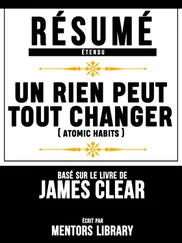No matter how you measure your improvement, habit tracking offers a simple way to make your habits more satisfying. Each measurement provides a little bit of evidence that you’re moving in the right direction and a brief moment of immediate pleasure for a job well done.
Chapter Summary
One of the most satisfying feelings is the feeling of making progress.
A habit tracker is a simple way to measure whether you did a habit—like marking an X on a calendar.
Habit trackers and other visual forms of measurement can make your habits satisfying by providing clear evidence of your progress.
Don’t break the chain. Try to keep your habit streak alive.
Never miss twice. If you miss one day, try to get back on track as quickly as possible.
Just because you can measure something doesn’t mean it’s the most important thing.
17 How an Accountability Partner Can Change Everything
AFTER SERVING AS a pilot in World War II, Roger Fisher attended Harvard Law School and spent thirty-four years specializing in negotiation and conflict management. He founded the Harvard Negotiation Project and worked with numerous countries and world leaders on peace resolutions, hostage crises, and diplomatic compromises. But it was in the 1970s and 1980s, as the threat of nuclear war escalated, that Fisher developed perhaps his most interesting idea.
At the time, Fisher was focused on designing strategies that could prevent nuclear war, and he had noticed a troubling fact. Any sitting president would have access to launch codes that could kill millions of people but would never actually see anyone die because he would always be thousands of miles away.
“My suggestion was quite simple,” he wrote in 1981. “Put that [nuclear] code number in a little capsule, and then implant that capsule right next to the heart of a volunteer. The volunteer would carry with him a big, heavy butcher knife as he accompanied the President. If ever the President wanted to fire nuclear weapons, the only way he could do so would be for him first, with his own hands, to kill one human being. The President says, ‘George, I’m sorry but tens of millions must die.’ He has to look at someone and realize what death is—what an innocent death is. Blood on the White House carpet. It’s reality brought home.
“When I suggested this to friends in the Pentagon they said, ‘My God, that’s terrible. Having to kill someone would distort the President’s judgment. He might never push the button.’”
Throughout our discussion of the 4th Law of Behavior Change we have covered the importance of making good habits immediately satisfying. Fisher’s proposal is an inversion of the 4th Law: Make it immediately unsatisfying.
Just as we are more likely to repeat an experience when the ending is satisfying, we are also more likely to avoid an experience when the ending is painful. Pain is an effective teacher. If a failure is painful, it gets fixed. If a failure is relatively painless, it gets ignored. The more immediate and more costly a mistake is, the faster you will learn from it. The threat of a bad review forces a plumber to be good at his job. The possibility of a customer never returning makes restaurants create good food. The cost of cutting the wrong blood vessel makes a surgeon master human anatomy and cut carefully. When the consequences are severe, people learn quickly.
The more immediate the pain, the less likely the behavior. If you want to prevent bad habits and eliminate unhealthy behaviors, then adding an instant cost to the action is a great way to reduce their odds.
We repeat bad habits because they serve us in some way, and that makes them hard to abandon. The best way I know to overcome this predicament is to increase the speed of the punishment associated with the behavior. There can’t be a gap between the action and the consequences.
As soon as actions incur an immediate consequence, behavior begins to change. Customers pay their bills on time when they are charged a late fee. Students show up to class when their grade is linked to attendance. We’ll jump through a lot of hoops to avoid a little bit of immediate pain.
There is, of course, a limit to this. If you’re going to rely on punishment to change behavior, then the strength of the punishment must match the relative strength of the behavior it is trying to correct. To be productive, the cost of procrastination must be greater than the cost of action. To be healthy, the cost of laziness must be greater than the cost of exercise. Getting fined for smoking in a restaurant or failing to recycle adds consequence to an action. Behavior only shifts if the punishment is painful enough and reliably enforced.
In general, the more local, tangible, concrete, and immediate the consequence, the more likely it is to influence individual behavior. The more global, intangible, vague, and delayed the consequence, the less likely it is to influence individual behavior.
Thankfully, there is a straightforward way to add an immediate cost to any bad habit: create a habit contract .
THE HABIT CONTRACT
The first seat belt law was passed in New York on December 1, 1984. At the time, just 14 percent of people in the United States regularly wore a seat belt—but that was all about to change.
Within five years, over half of the nation had seat belt laws. Today, wearing a seat belt is enforceable by law in forty-nine of the fifty states. And it’s not just the legislation, the number of people wearing seat belts has changed dramatically as well. In 2016, over 88 percent of Americans buckled up each time they got in a car. In just over thirty years, there was a complete reversal in the habits of millions of people.
Laws and regulations are an example of how government can change our habits by creating a social contract. As a society, we collectively agree to abide by certain rules and then enforce them as a group. Whenever a new piece of legislation impacts behavior—seat belt laws, banning smoking inside restaurants, mandatory recycling—it is an example of a social contract shaping our habits. The group agrees to act in a certain way, and if you don’t follow along, you’ll be punished.
Just as governments use laws to hold citizens accountable, you can create a habit contract to hold yourself accountable. A habit contract is a verbal or written agreement in which you state your commitment to a particular habit and the punishment that will occur if you don’t follow through. Then you find one or two people to act as your accountability partners and sign off on the contract with you.
Bryan Harris, an entrepreneur from Nashville, Tennessee, was the first person I saw put this strategy into action. Shortly after the birth of his son, Harris realized he wanted to shed a few pounds. He wrote up a habit contract between himself, his wife, and his personal trainer. The first version read, “Bryan’s #1 objective for Q1 of 2017 is to start eating correctly again so he feels better, looks better, and is able to hit his long-term goal of 200 pounds at 10% body fat.”
Below that statement, Harris laid out a road map for achieving his ideal outcome:
Phase #1: Get back to a strict “slow-carb” diet in Q1.
Phase #2: Start a strict macronutrient tracking program in Q2.
Phase #3: Refine and maintain the details of his diet and workout program in Q3.
Finally, he wrote out each of the daily habits that would get him to his goal. For example, “Write down all food that he consumes each day and weigh himself each day.”
And then he listed the punishment if he failed: “If Bryan doesn’t do these two items then the following consequence will be enforced: He will have to dress up each workday and each Sunday morning for the rest of the quarter. Dress up is defined as not wearing jeans, t-shirts, hoodies, or shorts. He will also give Joey (his trainer) $200 to use as he sees fit if he misses one day of logging food.”
Читать дальше




![Джеймс Клир - Атомные привычки [Как приобрести хорошие привычки и избавиться от плохих]](/books/403243/dzhejms-klir-atomnye-privychki-kak-priobresti-horosh-thumb.webp)



